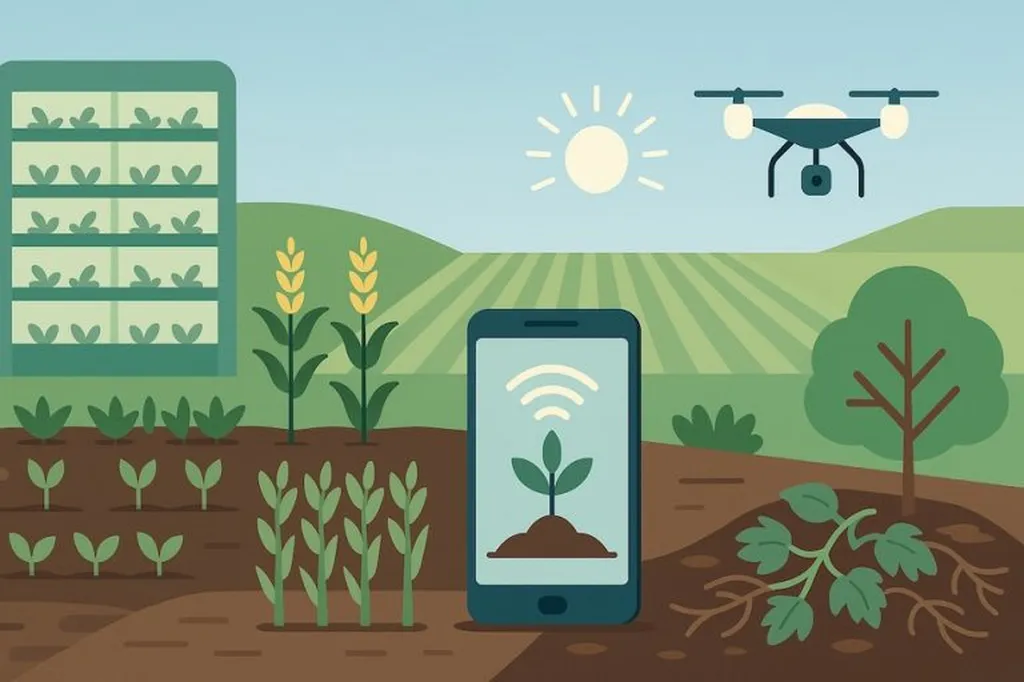As the global population hurtles toward 10 billion by mid-century, the question of how to feed more people without depleting the planet’s resources has become increasingly urgent. Sustainable agriculture and food security are now inextricably linked, as climate change, resource scarcity, and environmental degradation force a rethinking of how we grow, distribute, and consume food.
Sustainable agriculture is not a single technique but a holistic approach that balances environmental sustainability, economic viability, and social responsibility. It encompasses methods like crop rotation, agroforestry, regenerative farming, precision agriculture, and organic practices—all aimed at protecting natural resources while enhancing food production. The goal is to meet current food needs without compromising the ability of future generations to do the same.
Food security, meanwhile, means ensuring that people have reliable access to sufficient, safe, and nutritious food. However, achieving this becomes more challenging each year due to climate change disrupting crop cycles, soil depletion lowering yields, water scarcity affecting irrigation, and rising food prices and supply chain instability. Sustainable agriculture directly addresses these threats by improving soil fertility, conserving water, and boosting resilience to extreme weather, thereby creating stable, long-term food supplies.
Some sustainable practices have a particularly strong impact on food security. Regenerative farming, for example, builds organic matter, improves soil structure, and increases moisture retention, making farms more drought-resistant. Agroforestry integrates trees with crops or livestock, boosting biodiversity while reducing erosion and providing additional food or income sources. Integrated Pest Management (IPM) reduces dependency on chemical pesticides by using biological controls, crop rotation, and habitat management. Precision agriculture uses data and technology, such as sensors, drones, and AI, to optimize fertilizer, water, and pesticide use, reducing waste and increasing productivity.
Despite these advancements, the world’s food systems face unprecedented pressure. Climate change and extreme weather events, such as prolonged droughts and destructive floods, are escalating, threatening staple crops like wheat, maize, and rice. Soil degradation, with one-third of all agricultural soil already degraded, further compounds the problem. Water scarcity, with agriculture accounting for about 70% of all freshwater use, poses another significant risk. Additionally, the loss of biodiversity weakens resilience, as modern agriculture often relies on a narrow range of crops and livestock breeds. Economic and social barriers, including high costs, poor infrastructure, political instability, and inequality, also prevent millions from obtaining adequate nutrition.
Innovations are leading the way toward sustainable food systems. Regenerative agriculture, for instance, restores natural ecosystems while producing food through practices like cover cropping, no-till or low-till farming, composting, and crop diversification. These methods boost soil health, increase carbon sequestration, and improve nutrient density in crops. Smart farming and agri-tech are reshaping how food is produced, with AI-powered irrigation systems reducing water waste, drones monitoring pests, soil sensors measuring nutrient levels, and automated machinery boosting efficiency. Vertical farming and hydroponics allow food production in controlled environments, using 90% less water, no soil, minimal land, and enabling year-round growing conditions. Climate-resilient crops, developed by plant geneticists, can survive harsh conditions like drought, salt, and heat. Sustainable livestock management, through improved feed efficiency, rotational grazing, and methane-reducing technologies, can significantly lower livestock’s environmental footprint.
Policy and community action are also crucial in supporting sustainable agriculture. Effective government policies include incentives for regenerative farming, support for smallholder farmers, investment in agricultural research, and climate adaptation programs. Community-based approaches strengthen resilience by shortening supply chains, encouraging local markets, supporting community gardens and urban farms, and reducing food waste. International cooperation is essential, with partnerships for knowledge sharing, disaster relief programs, and cross-border research.
The future of global food security depends on transforming agricultural practices and reshaping how societies value natural resources. Sustainable agriculture offers a roadmap for this transformation by strengthening soil and ecosystems, enhancing productivity long-term, reducing the impact of climate change, improving economic outcomes for farmers, and ensuring equitable access to safe and nutritious food. The path forward requires innovation, collaboration, and a commitment to preserving the planet’s resources. If countries, industries, and communities embrace sustainable methods today, future generations will inherit a food system that is not only productive but resilient and environmentally sound.

